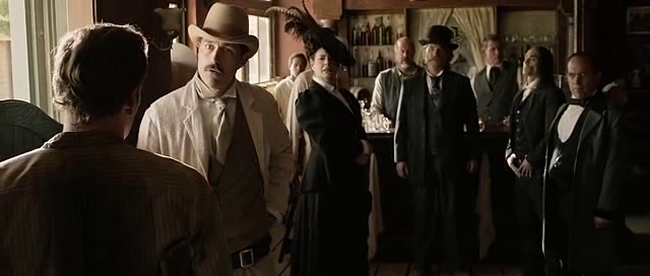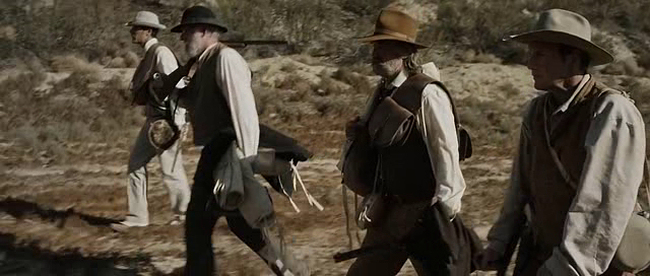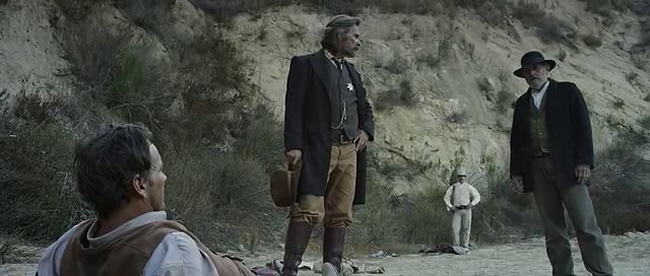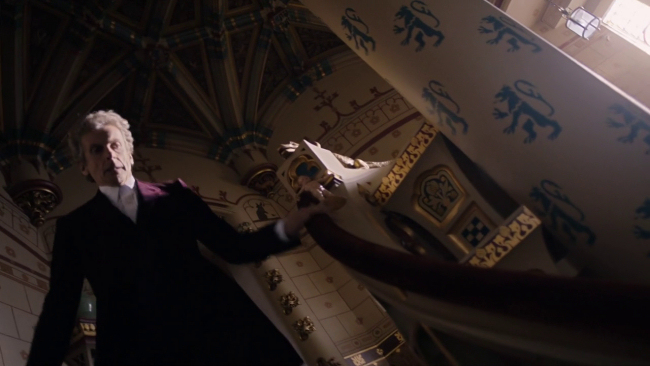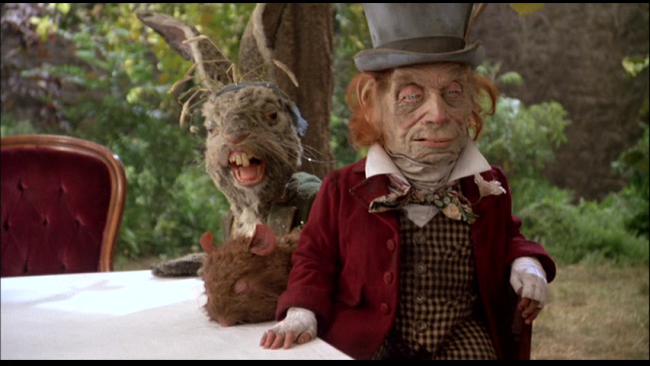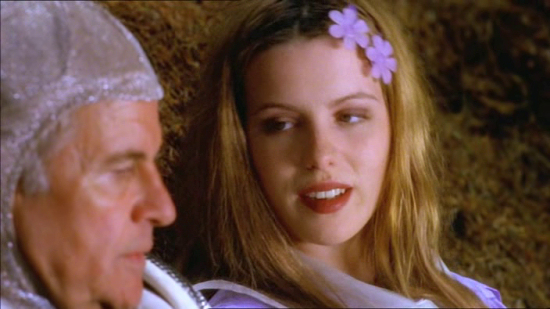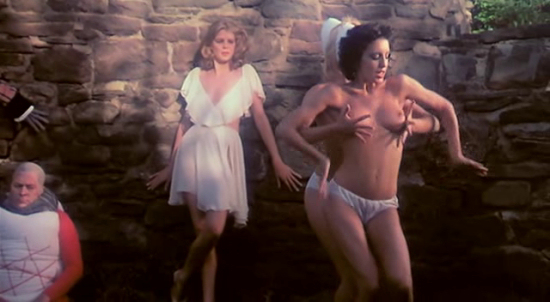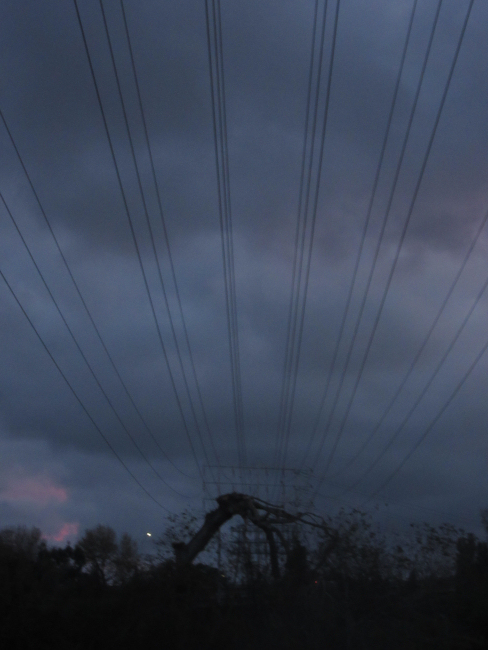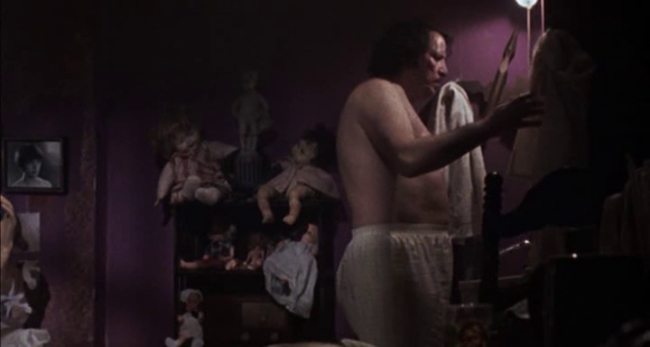God is great, Eve is beautiful but unintelligent, Adam is a paragon of integrity, Satan is the epitome of evil. Whether or not any of these things are true in
Paradise Lost, they are ideas presented by characters in the works to be taken as true or as believed by those characters. So the fundamental conflict is a conflict of perception. Eve might be vain but so is everyone else. As the quote from Ecclesiastes goes, "All is vanity." But Eve is perhaps the least vain. In fact, within
Paradise Lost, she functions as a voyeur, more of a voyeur even than characters who behold her physical beauty from a position of concealment. Eve inhabits the point of view of someone who considers herself deficient in intellect or information and is therefore freer to question and explore than those who, rightly or wrongly, maintain a bias that prevents them from assimilating new and potentially contradictory information.
Paradise Lost presents the points of view of several characters--Raphael when he approaches Eden, Adam when he describes witnessing God's acts, Satan when he travels from Hell to Earth. Eve more closely resembles the reader than any of those characters because she accepts as mysterious more of the things the reader holds to be mysterious than any of the other characters.
Honour is an important concept in Paradise Lost, fascinating in its presence in the former work considering how a newly created human race appears already to have a complex understanding of it. William Empson agrees with C.S. Lewis on this point; "We ought not to think of [Eve] as 'primitive' . . . but as a great lady, for example Eleanor of Aquitaine who was Queen both of England and of a French Court of Love. A puritan disapproved of these powerful females, including the Queen of Heaven; but they were still felt to be staggeringly grand, and Milton was set to turn all culture into an expression of the grandeur of the Fall" (Empson, 163). Milton's simultaneous disdain for female rulers and respect for its potential for grandeur can be observed in his other works. In his History of Britain he makes a point of continually mentioning the disastrous consequences of women being in positions of command.
In the Minority of her Son she had the rule, and then, as may be suppos'd, brought forth these Laws, not her self, for Laws are Masculin Births, but by the advice of her sagest Counselors; and therin she might do vertuously, since it befell her to supply the nonage of her Son: else nothing more awry from the Law of God and Nature, then that a Woman should give Laws to Men. (Milton)
Yet he seems to respect some of the female rulers he mentions and in terms of grandeur it's difficult not to be impressed by his reference to the Queen of Heaven in his early poem On the Morning of Christ's Nativity;
And mooned Ashtaroth,
Heav'ns Queen and Mother both,
Now sits not girt with Tapers holy shine, (On the Morning of Christ's Nativity, 200-202)
Ashtaroth appears in Paradise Lost as well, in Book I when it is mentioned that "Spirits when they please/Can either Sex assume" (PL I. 423-424). By being able to assume either sex, this presumably makes the two sexes intellectually equal among the angels. So why does Adam assume Eve is less intelligent than himself? In discussing this issue, analysts frequently quote Adam's analysis of Eve in Book VIII: "Too much of Ornament, in outward shew/Elaborate, of inward less exact" (538-539). A significant clue precedes this complaint, though, in Adam's recounting of his first encounter with Eve:
here passion first I felt,
Commotion strange, in all enjoyments else
Superiour and unmov'd, here onely weake
Against the charm of Beauties powerful glance.
Or Nature faild in mee, and left some part
Not proof enough such Object to sustain,
Or from my side subducting, took perhaps
More then enough; at least on her bestow'd (530-537)
Amazingly, Adam offers evidence of his own clouded judgement to reach the conclusion that it's Eve who is intellectually deficient. She seems to have the same effect on Satan when he sees her; "That space the Evil one abstracted stood/From his own evil, and for the time remaind/Stupidly good, of enmitie disarm'd" (IX. 463-465).
The concept of blame being placed in the passive object of a viewer's perspective for the viewer's profound discontentment or discomfort is a logical fallacy often attached to misogyny. Songwriter and parodist "Weird Al" Yankovic satirises the concept in his song "You Make Me" by taking the conceit to its logical extremes, adopting the role of a potential lover who is made to do bizarre things having little or no possible relation to the person he addresses:
You make me wanna hide a weasel in my shorts
You make me wanna phone home
You make me wanna write a dozen book reports
Then pack myself in styrofoam
Sometimes you make me want to build a model of the Eiffel Tower out of Belgian waffles (Yankovic)
This fallacy may be seen as similar to the fallacious concept of the "Male Gaze", a term employed in various forms of criticism of art, literature, and cinema. One flaw in the concept is that people who use it tend to define it differently, generally choosing between two definitions; some use the term simply to refer to art designed to be attractive to heterosexual men, others use it to refer to an ongoing partly subconscious campaign by patriarchy to suppress women. While there can be no doubt that throughout the history of art media there has more often then not been a presumed target audience of heterosexual men and that objectification of women and their bodies has frequently been an aspect of this, the term "Male Gaze" is a problematic concept for describing the issue. On occasions where the first definition is employed, it presumes the absence of women who are attracted to women, thereby reflecting a heterocentric bias, and in the case of the latter definition it assumes men are inherently oppressive which, true or not, is not conducive to a constructive conversation with men.
In examining the genesis of the term, though, we are led to an interesting insight that can be applied to Paradise Lost. The term originated in a 1975 article by Laura Mulvey called "Visual Pleasure and Narrative Cinema" where the concept is introduced as part of an examination of film. She discusses my favourite film, Alfred Hitchcock's Vertigo--to say it's my favourite is something of an understatement, it's been in fact an object of obsession for me so sometimes I tend to see Vertigo in everything. But I would say this description from Mulvey of the film would have a clear relevance to Paradise Lost for anyone who's read it:
. . . the hero portrays the contradictions and tensions experienced by the spectator. In Vertigo in particular . . . the look is central to the plot, oscillating between voyeurism and fetishistic fascination. As a twist, a further manipulation of the normal viewing process which in some sense reveals it, Hitchcock uses the process of identification normally associated with ideological correctness and the recognition of established morality and shows up its perverted side. (Mulvey, 7)
Aside from God, Adam is the moral authority, the "ideological correctness", in Paradise Lost--Eve is pledged to "God in him". He is the closest to a stock hero but it's not his perspective that is necessarily closest to the reader's. In her analysis of Vertigo, Mulvey misses one of the most fascinating aspects of the film, that, through a plot twist in the middle of the film, the woman is established as a voyeur. When it's revealed that Judy had been conscious at the time the male protagonist, Scottie, had "rescued" her from San Francisco Bay and therefore had consciously allowed him to remove her clothing and observed him as he did it, she in a sense sees him morally exposed. We can say the same thing about Eve's perception of Adam. This brings us back to the subject of honour and it's a crucial part of Eve's endeavour to convince Adam that the two of them should separate.
But harm precedes not sin: onely our Foe
Tempting affronts us with his foul esteem
Of our integritie: his foul esteeme
Sticks no dishonor on our Front, but turns
Foul on himself; (IX. 327-331)
What do they know about Satan's feelings towards them at this point? That he intends to lead them astray and little else. More germane to the present conversation is Adam's impression of Eve and Eve is here indirectly suggesting that it's Adam who doubts her integrity. Eve is doing something very complex here and very far from stupid. With all the impassioned addresses he gives her, she knows he doesn't want to insult her but she knows he doesn't consider his belief that she's intellectually inferior to him to be an insult. Eve transforms Adam's concern for her safety into an insult to her honour but she pins this insult to Satan rather than directly accusing Adam of insulting her. It's passive aggressive but what this shows is that Eve knows Adam better than Adam knows Eve--he wrongly assumes she's unintelligent, she rightly perceives he does not respect her intelligence. She is able to use this knowledge to make a calculated manoeuvre but more importantly it shows that her perceptions have greater accuracy and less bias therefore aligning her more with the reader's point of view.
Twitter Sonnet #813
Condoned upon the metal shoulder now
Robust, the parrot peals triumph at dawn.
Suggestive swimsuits sort unwieldy prow
To bank across the table heaven's lawn.
A Cinnamon Toast Crunch resurrection
Empowered crackers now to matter much.
A pulse pistol was shot for inflection.
Winona judges no-one's choice of lunch.
A pilgrim gauged enraged foraging gods.
An angel's stem cells cures the common cold.
The house can offer macaroni odds.
Dry pasta twists replaced the dice of old.
Delays at Eve restart the fronds of palms.
Inroads detoured through nonsensical psalms.


